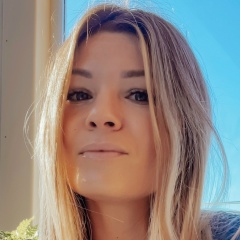Система английских времен на примере глагола to vodka
1. Во-первых, необходимо уяснить, что в исследуемом языке существуют глаголы:
1.1. неопределенные (Indefinite), то есть неизвестно, пьешь ты или не пьешь.
1.2. длительные (Continuous), то есть ты пьешь и находишься в состоянии глубокого запоя.
1.3. завершенные (Perfect), то есть ты либо уже вышел из запоя, либо уже окончательно напился и вырубился.
2. Во-вторых, существует объективное
2.1. настоящее (Present) - ваше отношение к спиртному;
2.2. прошлое (Past) - темное или светлое;
2.3. будущее (Future) - то, что вам светит: цирроз печени, наркологический диспансер, белая горячка и т.п.
3. Теперь все смешиваем:
3.1. Present
3.1.1. Present Indefinite (настоящее неопределенное) см. Выше
Пример: I vodka every day. - Я пью водку каждый день. Вместо every day можно употреблять выражения: usually, seldom, often, from time to time, from melkaya posuda, bolshimi glotkamy...
3.1.2. Present Continuous (настоящее длительное)
Пример: I am vodking now. - Я пью водку сейчас. Для эмфатического усиления с этим временем можно употреблять наречия предыдущего: He is constantly vodking! - Он полный синяк!
3.1.3. Present Perfect (настоящее завершенное)
Пример: I have already vodked..- Я уже нажрамшись. (В ответ на предложение выпить).
3.1.4. Present Perfect Continuous (настоящее завершенно-продолженное)
Пример: I have been vodking since childhood. - Я пью водку с детства. (тип inclusive) Я пил водку с детства (но уже не пью) (тип exclusive).
3.2 Past
3.2.1 Past Indefinite (прошедшее неопределенное)
Пример: I vodked yesterday. - Я напился вчера. (Не путать со временем 3.1.3., там ты напился только что.)
3.2.2. Past Continuous (прошедшее длительное). Часто употребляется, как придаточное предложение к главному во времени 3.2.1.
Пример: Unfortunately, I was vodking at the moment my wife came. - К несчастью я пил водку в тот момент, когда моя жена вошла.(последствия можно себе представить).
3.2.3. Past Perfect (прошедшее завершенное). Также употребляется, как придаточное.
Пример: I had already vodked when my wife came. - Я уже упился, когда вошла моя жена. (так что спорить со мной было бесполезно).
3.2.4. Past Perfect Continuous (прошедшее завершенно-продолженное)
Пример: I had been vodking for about a month when my wife came.- Я пил водку уже около месяца, когда вошла моя жена.(спрашивается, где же она шлялась все это время?)
3.3. Future
3.3.1. Future Indefinite (будущее неопределенное)
Пример: I will vodka tomorrow. - Я буду пить водку завтра.
Примечание: В придаточных предложениях времени и условия (то есть при отсутствии подходящего времени и условий) вместо времени 3.3.1. употребляется время 3.1.1.: If I vodka tomorrow I will be sick the day after tomorrow. - Если я выпью завтра, я буду болеть послезавтра.
3.3.2.Future Continuous (будущее длительное)
Пример: I will be vodking tomorrow at 5. - Я буду заниматься употреблением горячительных напитков завтра в пять.
Примечание: При горячем желании опохмелиться вместо времени 3.3.1. можно употреблять время 3.3.2.: Soon (soon) I will be vodking. - Скоро! Скоро я буду пить водку!
3.3.3. Future Perfect (будущее завершенное). Употребляется при планировании состояния опьянения.
Пример: Tomorrow by 5 o\"clock I will have vodked. - Завтра к пяти я буду нажрамшись. (что позволяет забыть о своих проблемах после пяти.)
3.3.4. Future Perfect Continuous (будущее завершенно-длительное)
Пример: By tomorrow morning I will have been vodking for a term. - К завтрашнему утру, я буду пить водку семестр.
Мы надеемся, что это доступное изложение системы английских времен, найдет отклик в сердцах читателей. Не рекомендуется употреблять эту систему в высших и средних учебных заведениях, так как без бутылки тут не разобраться. Глагола to vodka в английском языке не существует, так что предпочтительнее пользоваться словосочетанием to drink vodka...
P.S. Хотелось бы сделать махонькое дополнение: существует ещё одно время Future in the Past. Пример: Would you vodka in the children garden? - Хотели бы вы испивать белую в детском саду?
Комментарий:
Автор пособия совершенно несправедливо обошел своим вниманием тот факт, что в системе времен английского языка существует кроме довольно активного (используемого автором)еще и пассивный залог(Passive Voice). Видимо, по молодости лет автор не прочувствовал всю глубину глагола To Vodkа...
И я могу подтвердить это примерами, итак, по схеме автора:
Passive Voice
1. Present
1.1. Indefinite Tense
I am usually vodked .- Обычно меня поят водкой. (звучит,а?) (я думаю ни у кого не возникнет возражений по поводу того, что Тo Vodka-глагол правильный, поэтому я использую окончание -ed)
Вместо usually можно употреблять выражения:every day, seldom, often, from time to time и далее по оригиналу...
1.2. Present Continuous (настоящее длительное)
Man! I feel like a woman (танцевальный ритм от Shania Twain) and I can guess why!I am being hardly vodked at the moment. - Мужик, я счас ощущаю себя прямо женщиной какой-то и даже,блин,догадываюсь почему - меня уж очень поят водкой.. (кто девушку ужинает, тот ее и танцует...см. выше - залог пассивный)
1.3. Present Perfect (настоящее завершенное)
Пример: Where am I? Who am I? Have been vodked already, ik (с понижающейся интонацией).-Где я? Кто я? Напоили,с##и..,ик
2. Past
2.1. Past Indefinite (прошедшее неопределенное)
Пример: I was vodked yesterday.- Меня напоили вчера. (Зачем активно закладываться,например, перед женой?) Правда в случае с Past Continuous фраза приобретает более трагическое звучание, чем при использовании активного залога. Unfortunatly, I was being vodked at the moment my wife came. К несчастью,меня спаивали в тот момент, когда вошла моя жена.. также, впрочем, как и Past Perfect (прошедшее завершенное) Пример: I had already been vodked when my wife came. - Меня уже напоили, когда вошла моя жена.(no comments:)
3. Future
3.1. Future Indefinite (будущее неопределенное)
Пример: I feel I will be vodked soon ?/!- Чувствую, напоют меня скоро. (тот радостный момент, когда процесс становится необратимым)
В придаточных предложениях времени и условия: If I have not been vodked today I will vodka tomorrow . - Если меня не напоят сегодня, то напьюсь я завтра сам.(первая часть предложения-неудавшийся пассив, вторая - неизбежный актив).
3.2. Future Perfect (будущее завершенное)
Употребляется при планировании состояния опьянения за чужой счет со сторого положительной вероятностью. Tomorrow by 5 o\"clock I will have been fully vodked. - Завтра к пяти я буду в стельку пьян и не по своей инициативе и при любом раскладе.
Примечание: во временах неопределенно длительных (Present/Past/Future Perfect Continuous) а также в будущем продолженном (Future Continouos) пассив не существует...
1. Во-первых, необходимо уяснить, что в исследуемом языке существуют глаголы:
1.1. неопределенные (Indefinite), то есть неизвестно, пьешь ты или не пьешь.
1.2. длительные (Continuous), то есть ты пьешь и находишься в состоянии глубокого запоя.
1.3. завершенные (Perfect), то есть ты либо уже вышел из запоя, либо уже окончательно напился и вырубился.
2. Во-вторых, существует объективное
2.1. настоящее (Present) - ваше отношение к спиртному;
2.2. прошлое (Past) - темное или светлое;
2.3. будущее (Future) - то, что вам светит: цирроз печени, наркологический диспансер, белая горячка и т.п.
3. Теперь все смешиваем:
3.1. Present
3.1.1. Present Indefinite (настоящее неопределенное) см. Выше
Пример: I vodka every day. - Я пью водку каждый день. Вместо every day можно употреблять выражения: usually, seldom, often, from time to time, from melkaya posuda, bolshimi glotkamy...
3.1.2. Present Continuous (настоящее длительное)
Пример: I am vodking now. - Я пью водку сейчас. Для эмфатического усиления с этим временем можно употреблять наречия предыдущего: He is constantly vodking! - Он полный синяк!
3.1.3. Present Perfect (настоящее завершенное)
Пример: I have already vodked..- Я уже нажрамшись. (В ответ на предложение выпить).
3.1.4. Present Perfect Continuous (настоящее завершенно-продолженное)
Пример: I have been vodking since childhood. - Я пью водку с детства. (тип inclusive) Я пил водку с детства (но уже не пью) (тип exclusive).
3.2 Past
3.2.1 Past Indefinite (прошедшее неопределенное)
Пример: I vodked yesterday. - Я напился вчера. (Не путать со временем 3.1.3., там ты напился только что.)
3.2.2. Past Continuous (прошедшее длительное). Часто употребляется, как придаточное предложение к главному во времени 3.2.1.
Пример: Unfortunately, I was vodking at the moment my wife came. - К несчастью я пил водку в тот момент, когда моя жена вошла.(последствия можно себе представить).
3.2.3. Past Perfect (прошедшее завершенное). Также употребляется, как придаточное.
Пример: I had already vodked when my wife came. - Я уже упился, когда вошла моя жена. (так что спорить со мной было бесполезно).
3.2.4. Past Perfect Continuous (прошедшее завершенно-продолженное)
Пример: I had been vodking for about a month when my wife came.- Я пил водку уже около месяца, когда вошла моя жена.(спрашивается, где же она шлялась все это время?)
3.3. Future
3.3.1. Future Indefinite (будущее неопределенное)
Пример: I will vodka tomorrow. - Я буду пить водку завтра.
Примечание: В придаточных предложениях времени и условия (то есть при отсутствии подходящего времени и условий) вместо времени 3.3.1. употребляется время 3.1.1.: If I vodka tomorrow I will be sick the day after tomorrow. - Если я выпью завтра, я буду болеть послезавтра.
3.3.2.Future Continuous (будущее длительное)
Пример: I will be vodking tomorrow at 5. - Я буду заниматься употреблением горячительных напитков завтра в пять.
Примечание: При горячем желании опохмелиться вместо времени 3.3.1. можно употреблять время 3.3.2.: Soon (soon) I will be vodking. - Скоро! Скоро я буду пить водку!
3.3.3. Future Perfect (будущее завершенное). Употребляется при планировании состояния опьянения.
Пример: Tomorrow by 5 o\"clock I will have vodked. - Завтра к пяти я буду нажрамшись. (что позволяет забыть о своих проблемах после пяти.)
3.3.4. Future Perfect Continuous (будущее завершенно-длительное)
Пример: By tomorrow morning I will have been vodking for a term. - К завтрашнему утру, я буду пить водку семестр.
Мы надеемся, что это доступное изложение системы английских времен, найдет отклик в сердцах читателей. Не рекомендуется употреблять эту систему в высших и средних учебных заведениях, так как без бутылки тут не разобраться. Глагола to vodka в английском языке не существует, так что предпочтительнее пользоваться словосочетанием to drink vodka...
P.S. Хотелось бы сделать махонькое дополнение: существует ещё одно время Future in the Past. Пример: Would you vodka in the children garden? - Хотели бы вы испивать белую в детском саду?
Комментарий:
Автор пособия совершенно несправедливо обошел своим вниманием тот факт, что в системе времен английского языка существует кроме довольно активного (используемого автором)еще и пассивный залог(Passive Voice). Видимо, по молодости лет автор не прочувствовал всю глубину глагола To Vodkа...
И я могу подтвердить это примерами, итак, по схеме автора:
Passive Voice
1. Present
1.1. Indefinite Tense
I am usually vodked .- Обычно меня поят водкой. (звучит,а?) (я думаю ни у кого не возникнет возражений по поводу того, что Тo Vodka-глагол правильный, поэтому я использую окончание -ed)
Вместо usually можно употреблять выражения:every day, seldom, often, from time to time и далее по оригиналу...
1.2. Present Continuous (настоящее длительное)
Man! I feel like a woman (танцевальный ритм от Shania Twain) and I can guess why!I am being hardly vodked at the moment. - Мужик, я счас ощущаю себя прямо женщиной какой-то и даже,блин,догадываюсь почему - меня уж очень поят водкой.. (кто девушку ужинает, тот ее и танцует...см. выше - залог пассивный)
1.3. Present Perfect (настоящее завершенное)
Пример: Where am I? Who am I? Have been vodked already, ik (с понижающейся интонацией).-Где я? Кто я? Напоили,с##и..,ик
2. Past
2.1. Past Indefinite (прошедшее неопределенное)
Пример: I was vodked yesterday.- Меня напоили вчера. (Зачем активно закладываться,например, перед женой?) Правда в случае с Past Continuous фраза приобретает более трагическое звучание, чем при использовании активного залога. Unfortunatly, I was being vodked at the moment my wife came. К несчастью,меня спаивали в тот момент, когда вошла моя жена.. также, впрочем, как и Past Perfect (прошедшее завершенное) Пример: I had already been vodked when my wife came. - Меня уже напоили, когда вошла моя жена.(no comments:)
3. Future
3.1. Future Indefinite (будущее неопределенное)
Пример: I feel I will be vodked soon ?/!- Чувствую, напоют меня скоро. (тот радостный момент, когда процесс становится необратимым)
В придаточных предложениях времени и условия: If I have not been vodked today I will vodka tomorrow . - Если меня не напоят сегодня, то напьюсь я завтра сам.(первая часть предложения-неудавшийся пассив, вторая - неизбежный актив).
3.2. Future Perfect (будущее завершенное)
Употребляется при планировании состояния опьянения за чужой счет со сторого положительной вероятностью. Tomorrow by 5 o\"clock I will have been fully vodked. - Завтра к пяти я буду в стельку пьян и не по своей инициативе и при любом раскладе.
Примечание: во временах неопределенно длительных (Present/Past/Future Perfect Continuous) а также в будущем продолженном (Future Continouos) пассив не существует...
The system of English tenses by the example of the verb to vodka
1. Firstly, it is necessary to understand that in the studied language there are verbs:
1.1. indefinite, that is, it is not known whether you are drinking or not.
1.2. Continuous, that is, you drink and are in a state of deep binge.
1.3. completed (Perfect), that is, you either have already come out of binge, or have already completely drunk and passed out.
2. Secondly, there is an objective
2.1. Present - your attitude to alcohol;
2.2. the past (Past) - dark or light;
2.3. the future (Future) - what shines for you: cirrhosis of the liver, narcological clinic, delirium tremens, etc.
3. Now we mix everything:
3.1. Present
3.1.1. Present Indefinite (see above)
Example: I vodka every day. - I drink vodka every day. Instead of every day, you can use the expressions: usually, seldom, often, from time to time, from melkaya posuda, bolshimi glotkamy ...
3.1.2. Present Continuous
Example: I am vodking now. - I'm drinking vodka now. For emphatic amplification with this time you can use the adverbs of the previous: He is constantly vodking! “He's a complete bruise!”
3.1.3. Present Perfect
Example: I have already vodked ..- I am already drunk. (In response to the offer to drink).
3.1.4. Present Perfect Continuous
Example: I have been vodking since childhood. - I have been drinking vodka since childhood. (type inclusive) I have been drinking vodka since childhood (but I don’t drink it anymore) (type exclusive).
3.2 Past
3.2.1 Past Indefinite
Example: I vodked yesterday. - I got drunk yesterday. (Not to be confused with time 3.1.3., There you just got drunk.)
3.2.2. Past Continuous Often used as a relative clause to the main thing in time 3.2.1.
Example: Unfortunately, I was vodking at the moment my wife came. - Unfortunately, I drank vodka at the moment when my wife entered. (The consequences can be imagined).
3.2.3. Past Perfect (past completed). Also used as a subordinate clause.
Example: I had already vodked when my wife came. “I was already drunk when my wife came in.” (so arguing with me was useless).
3.2.4. Past Perfect Continuous
Example: I had been vodking for about a month when my wife came.- I had been drinking vodka for about a month when my wife came in. (Asks, where did she hang around all this time?)
3.3. Future
3.3.1. Future Indefinite
Example: I will vodka tomorrow. - I will drink vodka tomorrow.
Note: In subordinate clauses of time and condition (that is, in the absence of suitable time and conditions) instead of time 3.3.1. time is taken 3.1.1 .: If I vodka tomorrow I will be sick the day after tomorrow. “If I drink tomorrow, I will be sick the day after tomorrow.”
3.3.2 Future Continuous
Example: I will be vodking tomorrow at 5. - I will be consuming strong drinks tomorrow at five.
Note: In case of ardent desire to get a hangover instead of time 3.3.1. you can use time 3.3.2 .: Soon (soon) I will be vodking. - Coming soon! Soon I will drink vodka!
3.3.3. Future Perfect. Used when planning a state of intoxication.
Example: Tomorrow by 5 o \ "clock I will have vodked. - Tomorrow at five I will get drunk. (Which allows me to forget about my problems after five.)
3.3.4. Future Perfect Continuous
Example: By tomorrow morning I will have been vodking for a term. - By tomorrow morning, I will drink vodka a semester.
We hope that this accessible exposition of the system of English times will find a response in the hearts of readers. It is not recommended to use this system in higher and secondary educational institutions, since without a bottle you can’t figure it out here. The verb to vodka does not exist in English, so it is preferable to use the phrase to drink vodka ...
P.S. I would like to make a tiny addition: there is one more time Future in the Past. Example: Would you vodka in the children garden? - Would you like to drink white in kindergarten?
A comment:
The author of the manual completely unjustly ignored the fact that in the system of the English language there is, in addition to the rather active (used by the author) passive voice (Passive Voice). Apparently, in his youth, the author did not feel the whole depth of the verb To Vodka ...
And I can confirm this with examples, so, according to the author’s scheme:
Passive voice
1. Present
1.1. Indefinite tense
I am usually vodked .- Usually they drink me vodka. (sounds, huh?) (I think no one will object to the fact that the Vodka-verb is correct, so I use the ending -ed)
Instead of usually, you can use the expressions: every day, seldom, often, from time to time and further according to the original ...
1.2. Present Continuous
Man! I feel like a woman (Shania Twain dance rhythm) and I can guess why! I am being hardly vodke
1. Firstly, it is necessary to understand that in the studied language there are verbs:
1.1. indefinite, that is, it is not known whether you are drinking or not.
1.2. Continuous, that is, you drink and are in a state of deep binge.
1.3. completed (Perfect), that is, you either have already come out of binge, or have already completely drunk and passed out.
2. Secondly, there is an objective
2.1. Present - your attitude to alcohol;
2.2. the past (Past) - dark or light;
2.3. the future (Future) - what shines for you: cirrhosis of the liver, narcological clinic, delirium tremens, etc.
3. Now we mix everything:
3.1. Present
3.1.1. Present Indefinite (see above)
Example: I vodka every day. - I drink vodka every day. Instead of every day, you can use the expressions: usually, seldom, often, from time to time, from melkaya posuda, bolshimi glotkamy ...
3.1.2. Present Continuous
Example: I am vodking now. - I'm drinking vodka now. For emphatic amplification with this time you can use the adverbs of the previous: He is constantly vodking! “He's a complete bruise!”
3.1.3. Present Perfect
Example: I have already vodked ..- I am already drunk. (In response to the offer to drink).
3.1.4. Present Perfect Continuous
Example: I have been vodking since childhood. - I have been drinking vodka since childhood. (type inclusive) I have been drinking vodka since childhood (but I don’t drink it anymore) (type exclusive).
3.2 Past
3.2.1 Past Indefinite
Example: I vodked yesterday. - I got drunk yesterday. (Not to be confused with time 3.1.3., There you just got drunk.)
3.2.2. Past Continuous Often used as a relative clause to the main thing in time 3.2.1.
Example: Unfortunately, I was vodking at the moment my wife came. - Unfortunately, I drank vodka at the moment when my wife entered. (The consequences can be imagined).
3.2.3. Past Perfect (past completed). Also used as a subordinate clause.
Example: I had already vodked when my wife came. “I was already drunk when my wife came in.” (so arguing with me was useless).
3.2.4. Past Perfect Continuous
Example: I had been vodking for about a month when my wife came.- I had been drinking vodka for about a month when my wife came in. (Asks, where did she hang around all this time?)
3.3. Future
3.3.1. Future Indefinite
Example: I will vodka tomorrow. - I will drink vodka tomorrow.
Note: In subordinate clauses of time and condition (that is, in the absence of suitable time and conditions) instead of time 3.3.1. time is taken 3.1.1 .: If I vodka tomorrow I will be sick the day after tomorrow. “If I drink tomorrow, I will be sick the day after tomorrow.”
3.3.2 Future Continuous
Example: I will be vodking tomorrow at 5. - I will be consuming strong drinks tomorrow at five.
Note: In case of ardent desire to get a hangover instead of time 3.3.1. you can use time 3.3.2 .: Soon (soon) I will be vodking. - Coming soon! Soon I will drink vodka!
3.3.3. Future Perfect. Used when planning a state of intoxication.
Example: Tomorrow by 5 o \ "clock I will have vodked. - Tomorrow at five I will get drunk. (Which allows me to forget about my problems after five.)
3.3.4. Future Perfect Continuous
Example: By tomorrow morning I will have been vodking for a term. - By tomorrow morning, I will drink vodka a semester.
We hope that this accessible exposition of the system of English times will find a response in the hearts of readers. It is not recommended to use this system in higher and secondary educational institutions, since without a bottle you can’t figure it out here. The verb to vodka does not exist in English, so it is preferable to use the phrase to drink vodka ...
P.S. I would like to make a tiny addition: there is one more time Future in the Past. Example: Would you vodka in the children garden? - Would you like to drink white in kindergarten?
A comment:
The author of the manual completely unjustly ignored the fact that in the system of the English language there is, in addition to the rather active (used by the author) passive voice (Passive Voice). Apparently, in his youth, the author did not feel the whole depth of the verb To Vodka ...
And I can confirm this with examples, so, according to the author’s scheme:
Passive voice
1. Present
1.1. Indefinite tense
I am usually vodked .- Usually they drink me vodka. (sounds, huh?) (I think no one will object to the fact that the Vodka-verb is correct, so I use the ending -ed)
Instead of usually, you can use the expressions: every day, seldom, often, from time to time and further according to the original ...
1.2. Present Continuous
Man! I feel like a woman (Shania Twain dance rhythm) and I can guess why! I am being hardly vodke
У записи 180 лайков,
50 репостов.
50 репостов.
Эту запись оставил(а) на своей стене Арсений Кунцевич


































































